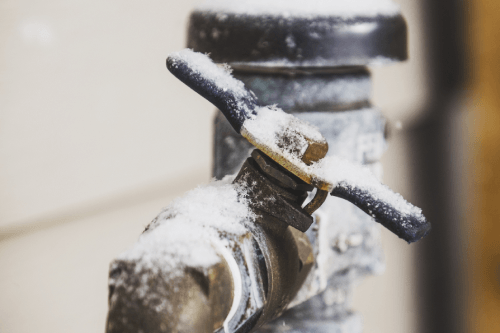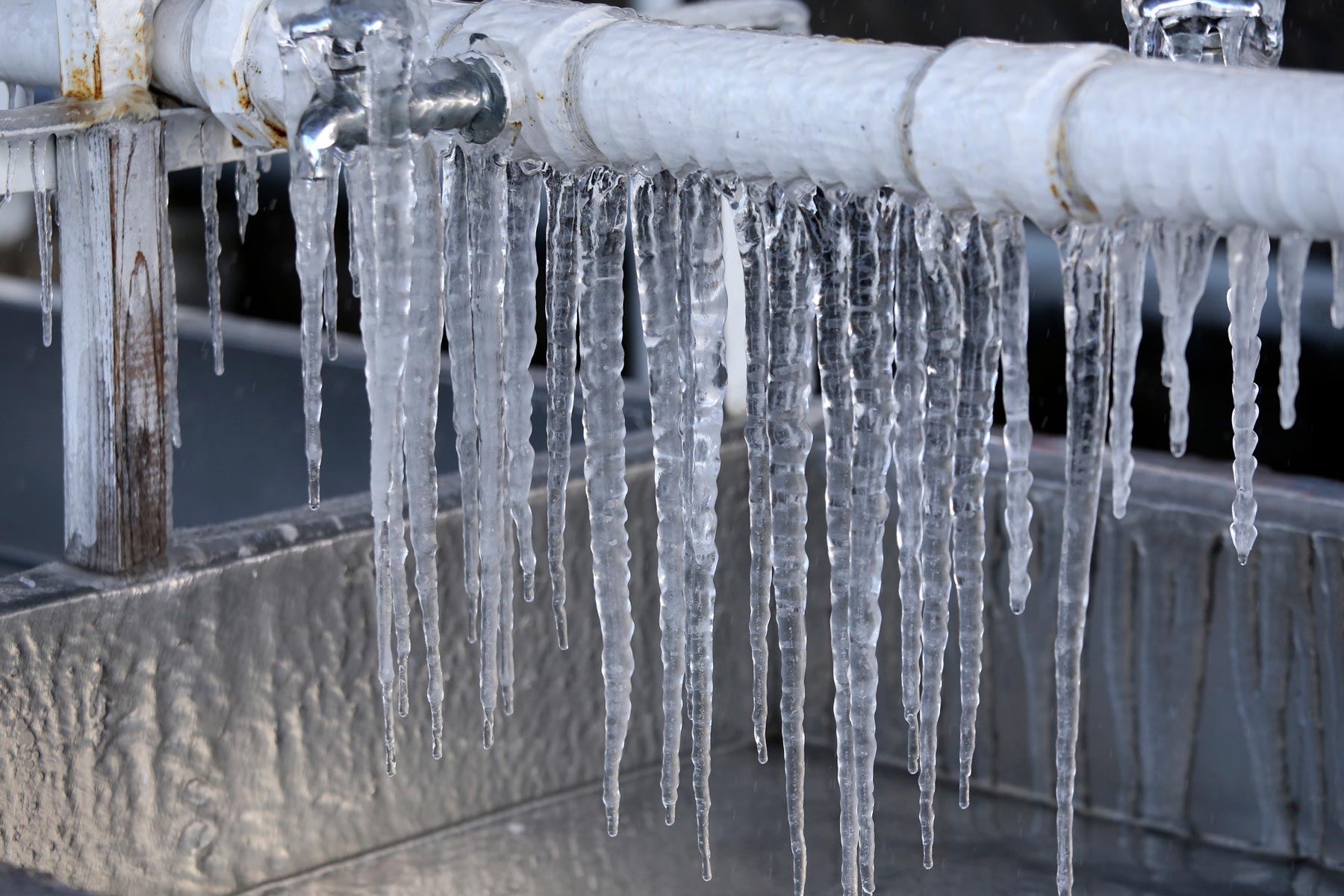Key Approaches for Preventing Frozen Plumbing in Cold Weather
Key Approaches for Preventing Frozen Plumbing in Cold Weather
Blog Article
Have you been trying to locate help around How to Prevent Your Pipes From Freezing?

Cold weather can damage your plumbing, specifically by freezing pipelines. Below's exactly how to stop it from occurring and what to do if it does.
Intro
As temperature levels decline, the threat of icy pipelines rises, possibly leading to pricey repair services and water damage. Comprehending how to stop icy pipes is crucial for home owners in chilly climates.
Comprehending Frozen Pipelines
What causes pipelines to ice up?
Pipes ice up when subjected to temperatures below 32 ° F (0 ° C) for extended periods. As water inside the pipelines freezes, it broadens, taxing the pipe wall surfaces and potentially creating them to rupture.
Risks and problems
Icy pipelines can result in supply of water disturbances, property damage, and costly fixings. Ruptured pipelines can flooding homes and create extensive structural damage.
Indications of Frozen Water Lines
Determining frozen pipes early can avoid them from bursting.
How to determine frozen pipes
Look for decreased water flow from faucets, unusual odors or noises from pipes, and visible frost on subjected pipes.
Avoidance Tips
Shielding prone pipelines
Wrap pipes in insulation sleeves or make use of warmth tape to protect them from freezing temperatures. Focus on pipelines in unheated or external areas of the home.
Heating techniques
Maintain indoor spaces properly warmed, particularly areas with plumbing. Open cupboard doors to allow warm air to flow around pipelines under sinks.
Shielding Outside Plumbing
Yard pipes and exterior faucets
Separate and drain yard pipes prior to winter. Set up frost-proof spigots or cover outdoor faucets with protected caps.
What to Do If Your Pipelines Freeze
Immediate actions to take
If you presume icy pipelines, keep faucets open up to soothe pressure as the ice melts. Use a hairdryer or towels soaked in warm water to thaw pipes slowly.
Long-Term Solutions
Architectural adjustments
Take into consideration rerouting pipes far from exterior wall surfaces or unheated areas. Add extra insulation to attic rooms, cellars, and crawl spaces.
Upgrading insulation
Invest in top quality insulation for pipes, attic rooms, and walls. Appropriate insulation helps keep consistent temperatures and lowers the risk of frozen pipelines.
Verdict
Avoiding icy pipelines calls for positive actions and quick actions. By understanding the causes, signs, and safety nets, homeowners can shield their pipes during cold weather.
Helpful Tips to Prevent Frozen Pipes this Winter
UNDERSTANDING THE BASICS: WHY PIPES FREEZE AND WHY IT’S A PROBLEM
Water freezing inside pipes is common during the winter months, but understanding why pipes freeze, and the potential problems it can cause is crucial in preventing such incidents. This section will delve into the basics of why pipes freeze and the associated problems that may arise.
THE SCIENCE BEHIND FROZEN PIPES
When water reaches freezing temperatures, it undergoes a physical transformation and solidifies into ice. This expansion of water as it freezes is the primary reason pipes can burst. As the water inside the pipe freezes, it expands, creating immense pressure on the walls. If the pressure becomes too great, the pipe can crack or rupture, leading to leaks and water damage.
FACTORS THAT CONTRIBUTE TO PIPE FREEZING
Low Temperatures: Extremely cold weather, especially below freezing, increases the risk of pipes freezing. Uninsulated or Poorly Insulated Pipes: Pipes located in unheated areas, such as basements, crawl spaces, or attics, are more prone to freezing. Insufficient insulation or lack of insulation altogether exacerbates the problem. Exterior Wall Exposure: Pipes running along exterior walls are susceptible to freezing as they encounter colder temperatures outside. Lack of Heating or Temperature Regulation: Inadequate heating or inconsistent temperature control in your home can contribute to frozen pipes. PROBLEMS CAUSED BY FROZEN PIPES
- Pipe Bursting: As mentioned earlier, the expansion of water as it freezes can cause pipes to burst, resulting in significant water damage.
- Water Damage: When pipes burst, it can lead to flooding and water damage to your property, including walls, ceilings, flooring, and personal belongings.
- Structural Damage: Prolonged exposure to water from burst pipes can compromise the structural integrity of your home, leading to costly repairs.
- Mold and Mildew Growth: Excess moisture from water damage can create a favorable environment for mold and mildew growth, posing health risks to occupants.
- Disrupted Water Supply: Frozen pipes can also result in a complete or partial loss of water supply until the issue is resolved.
WHY CERTAIN PIPES ARE MORE PRONE TO FREEZING
- Location: Pipes located in unheated or poorly insulated areas, such as basements, crawl spaces, attics, or exterior walls, are at higher risk of freezing.
- Exterior Pipes: Outdoor pipes, such as those used for irrigation or exposed plumbing, are particularly vulnerable to freezing as they are directly exposed to the elements.
- Supply Lines: Pipes that carry water from the main water supply into your home, including the main water line, are critical to protect as freezing in these lines can affect your entire plumbing system.
- Underground Pipes: Pipes buried underground, such as those connected to sprinkler systems or outdoor faucets, can be susceptible to freezing if not properly insulated.
https://busybusy.com/blog/helpful-tips-to-prevent-frozen-pipes-this-winter/

I recently found that article about Helpful Tips to Prevent Frozen Pipes this Winter while doing research the internet. So long as you enjoyed our article kindly make sure you remember to pass it around. We love reading our article about Helpful Tips to Prevent Frozen Pipes this Winter.
Call Today Report this page